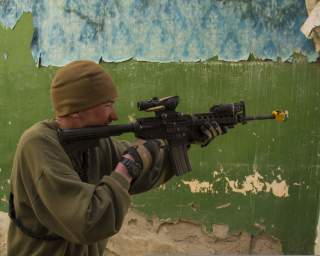The South Caucasus: United, and Divided, by NATO
Georgia, Armenia and Azerbaijan have different hopes for the Atlantic Alliance.
Amid increasing regional risks, Armenia adopted a new Planning and Review Process with NATO, designed to enable Armenia to restructure and modernize its armed forces, finally abandoning the obsolete Soviet army system. It would indeed be wrong to infer that this particular step constitutes an environment for a geopolitical U-turn on Armenia’s part. Nevertheless, it is driven by a necessity to strengthen armed forces and make them capable of addressing new security challenges. In short, tactical failures in the Four-Day War, to some extent, spurred Armenia’s Ministry of Defense on one hand to seek new defense partners abroad, and on the other hand to intensify cooperate with NATO and the United States in order to diminish dependence on Moscow in defense and security affairs.
Notwithstanding the fact that Armenian military personnel are already attending NATO training bases in Georgia, this particular advancement is aimed at conceptualizing the alliance’s support and contribution to modernizing and adapting Armenia’s military in a more consistent manner. Recently, Gen. Petr Pavel underscored, while speaking of cooperation with partners in the Black Sea area, “We can provide them different levels of assistance to increase their own capabilities.” This is likely what Armenia anticipates from improving ties with NATO. According to reports, in order to put in place the PARP for Armenia, the Partnership Goals Assessment has been completed as a mandatory procedure, and it should soon be approved by the North Atlantic Council. As such, the document includes a wide range of joint activities on the most important areas, reforming the security and defense sector and implementing the NATO standards, which are expected to be a noticeable investment in stability and predictability in the South Caucasus.
Therefore, taking into account Moscow’s antipathy towards NATO, and its waning capacities, the discussed moves inherently raise the question: will Russia be able to react, and what capacities does Moscow still possess to react in its South-Caucasian strategic flank?
Eduard Abrahamyan, Ph.D, is an Armenian regional security and defense policy analyst. He is currently based at the University of Leicester, UK, department of Intelligence, Security and Strategic Studies. His expertise is on NATO’s strategy evolution and adaptation in the Eastern Europe and Black Sea regions. He is also a fellow of the Washington-based NGO Policy Forum Armenia.
Image: Wikimedia Commons/Department of Defense

